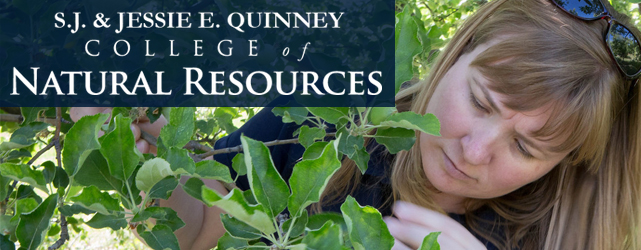Seedbanks of Bromus tectorum-dominated Communities in the Great Basin
Document Type
Article
Journal/Book Title/Conference
Western North American Naturalist
Volume
61
Publication Date
2001
First Page
85
Last Page
92
Abstract
Many shrub-steppe communities of the Great Basin have been converted to Bromus tectorum–dominated communities. Seed production and seed bank traits of native perennials may be poorly suited to conditions of communities dominated by this introduced annual, and native perennials may be lost from the seed banks. Seed banks of former shrub-steppe communities now dominated by annuals were quantified on 3 sites in western Utah to determine if seeds of native perennials were present and to track changes in Bromus tectorum seed densities and species composition of seed banks after fire. Burned and unburned plots on 1 site were sampled for 3 years after a wildfire. Plots consisted of grids of 5.2-cm-diameter soil cores. Seeds were quantified by monitoring seedling emergence from these cores over an extended period of time in the greenhouse. On unburned plots introduced annuals, mainly Bromus tectorum, constituted >99% of the seed bank, with Bromus densities of 4800–12,800 seeds m–2. Immediately after the fire, Bromus seed density was <3% of unburned plots, but its seed bank density recovered in 2 years. The major change in species composition of the seed bank following fire was a shift in proportional abundance between Bromus and 2 other introduced annuals immediately after the fire. One native annual and a native annual/perennial (Oenothera pallida) increased in the seed bank the 1st year after the fire. Of all samples, only 4 perennial-plant seeds representing 3 species (excluding Oenothera) were found, for a total perennial-plant seed bank of 2–3 seeds m–2. Lack of perennial-plant seeds in annual-dominated communities impairs the reestablishment of native perennials. Because perennial-plant seeds are so few, the reduction of Bromus seed banks by fire provides no opportunity for reestablishment of native species.
Recommended Citation
Humphrey, L.D.‡ and E.W. Schupp. 2001. Seedbanks of Bromus tectorum- ‐dominated communities in the Great Basin. Western North American Naturalist 61: 85–92.





